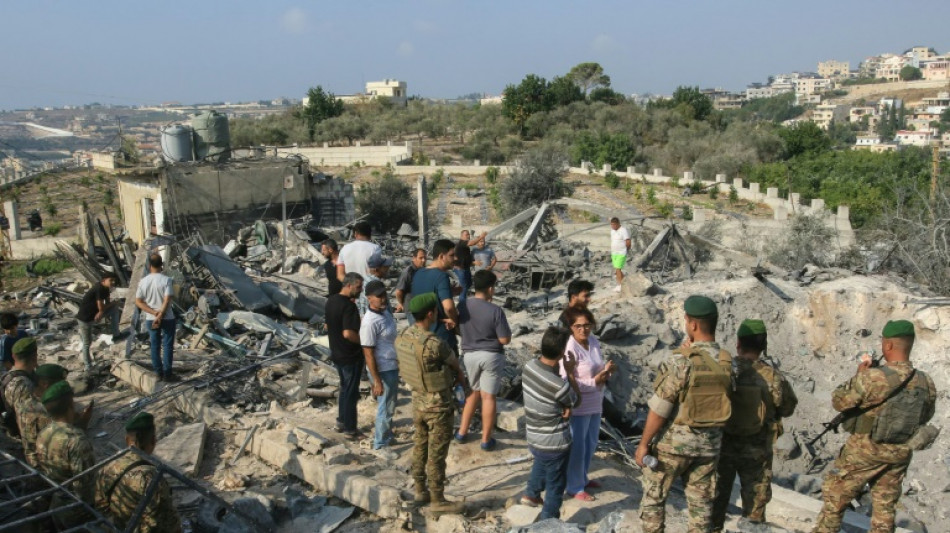
-
 Scandic Trust Group strengthens sales network with First Idea Consultant
Scandic Trust Group strengthens sales network with First Idea Consultant
-
US set for travel chaos as flights cut due to govt shutdown
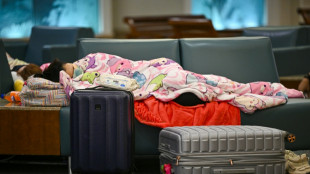
-
 Sabalenka and Pegula book their spots in WTA Finals last four
Sabalenka and Pegula book their spots in WTA Finals last four
-
'Our brother-in-law': Arab world embraces New York's new mayor
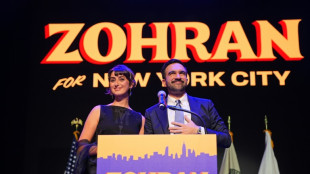
-
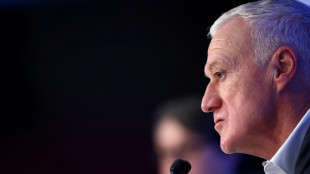 France boss Deschamps would prefer to 'avoid playing' on Paris attacks anniversary
France boss Deschamps would prefer to 'avoid playing' on Paris attacks anniversary
-
Pegula sweeps past Paolini to reach WTA Finals last four

-
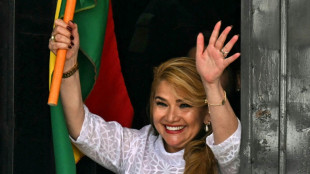 Bolivian ex-president Anez leaves prison after sentence annuled
Bolivian ex-president Anez leaves prison after sentence annuled
-
Stocks slide as investors weigh data, interest rate cuts

-
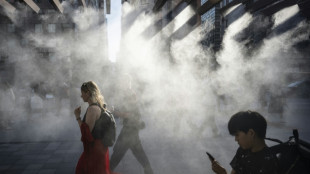 UN says 2025 to be among top three warmest years on record
UN says 2025 to be among top three warmest years on record
-
Fleetwood and Lowry lift each other into Abu Dhabi lead
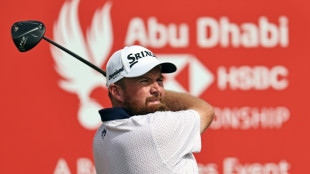
-
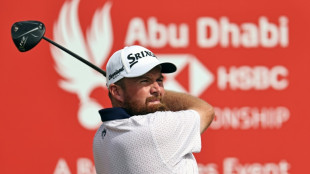 Fleetwod and Lowry lift each other into Abu Dhabi lead
Fleetwod and Lowry lift each other into Abu Dhabi lead
-
New Zealand make changes after Barrett brothers' injuries as Scotland drop Van der Merwe
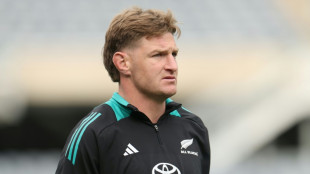
-
 Dallas Cowboys' Marshawn Kneeland dies at 24: franchise
Dallas Cowboys' Marshawn Kneeland dies at 24: franchise
-
Pegula dispatches Paolini to keep WTA Finals semis bid alive
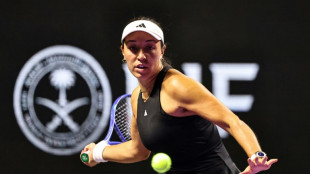
-
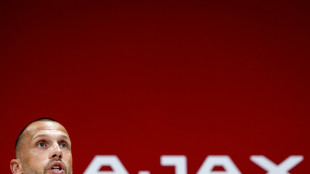 Dutch giants Ajax sack coach John Heitinga
Dutch giants Ajax sack coach John Heitinga
-
Kirchner on trial in Argentina's 'biggest ever' corruption case

-
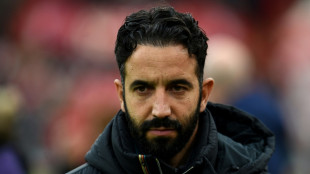 Amorim urges Man Utd to 'focus on future' after Ronaldo criticism
Amorim urges Man Utd to 'focus on future' after Ronaldo criticism
-
US judge drops criminal charges against Boeing over 737 MAX 8 crashes
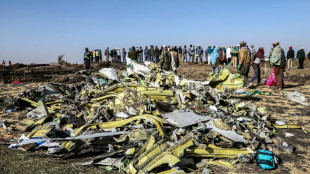
-
 World must face 'moral failure' of missing 1.5C: UN chief to COP30
World must face 'moral failure' of missing 1.5C: UN chief to COP30
-
UK grandmother leaves Indonesia death row to return home
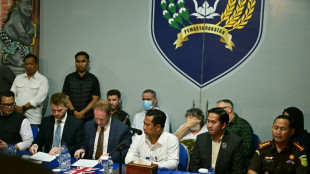
-
 Garcia broken nose adds to Barca defensive worries
Garcia broken nose adds to Barca defensive worries
-
Tight UK security ahead of match against Israeli club
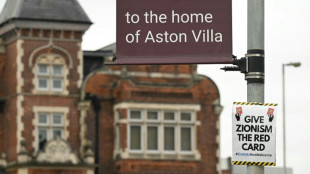
-
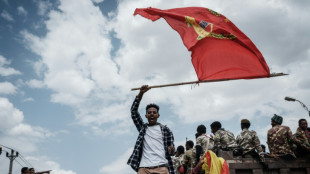 Ethiopia's Afar region says attacked by Tigray forces
Ethiopia's Afar region says attacked by Tigray forces
-
Nancy Pelosi, Democratic giant, Trump foe, first woman House speaker, to retire
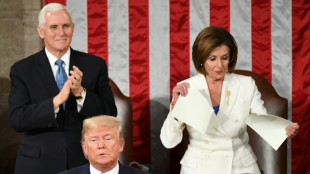
-
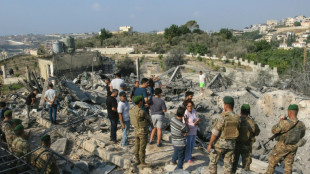 Israel strikes Hezbollah targets in Lebanon
Israel strikes Hezbollah targets in Lebanon
-
Burger strikes as South Africa restrict Pakistan to 269-9 in second ODI
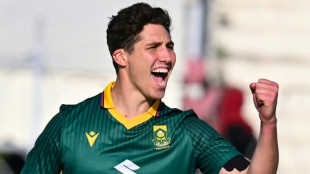
-
 Stocks slip as investors weigh earnings, tariffs
Stocks slip as investors weigh earnings, tariffs
-
Police say 19 held after raid at Swedish start-up Stegra to be deported
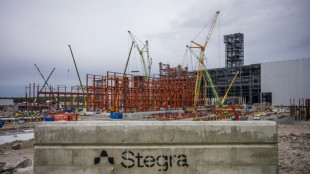
-
 Kante returns as France seek to clinch World Cup berth
Kante returns as France seek to clinch World Cup berth
-
Marcus Smith starts at full-back as England ring changes for Fiji
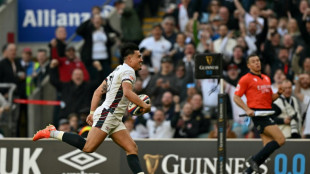
-
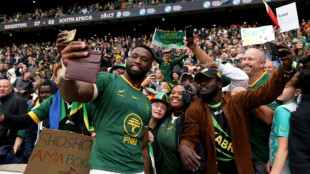 Kolisi 100th Test 'no distraction' for Erasmus' South Africa
Kolisi 100th Test 'no distraction' for Erasmus' South Africa
-
Teetering Belgian government given more time to agree budget
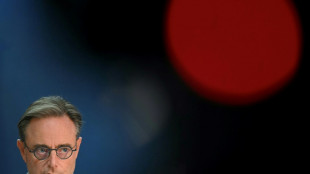
-
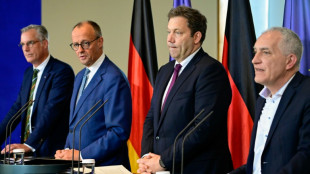 Merz backs EU plan to protect steel sector from Chinese imports
Merz backs EU plan to protect steel sector from Chinese imports
-
New Zealand make Scotland changes after Barrett brothers' injuries
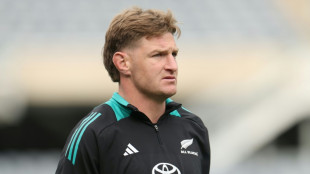
-
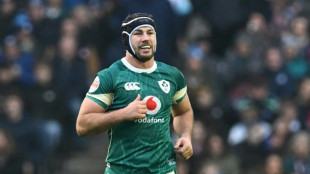 'Roy of the Rovers story' -- Farrell handed Ireland debut for Japan Test
'Roy of the Rovers story' -- Farrell handed Ireland debut for Japan Test
-
Stones backs Man City team-mate Foden to pose England dilemma for Tuchel

-
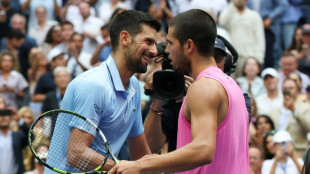 Djokovic to face Alcaraz in ATP Finals groups
Djokovic to face Alcaraz in ATP Finals groups
-
Facing climate 'overshoot', world heads into risky territory
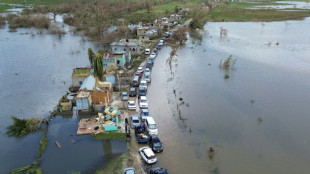
-
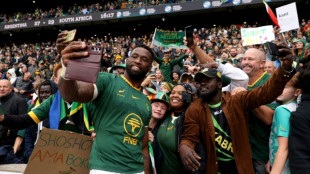 Springbok skipper Kolisi to play 100th Test against France
Springbok skipper Kolisi to play 100th Test against France
-
Typhoon Kalmaegi hits Vietnam after killing 140 in Philippines
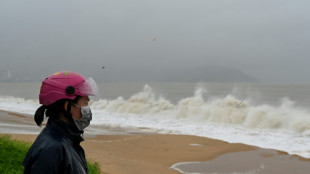
-
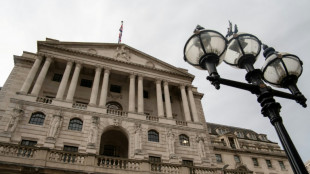 Bank of England leaves rate unchanged before UK budget
Bank of England leaves rate unchanged before UK budget
-
Germany recall Sane, hand El Mala debut for World Cup qualifers
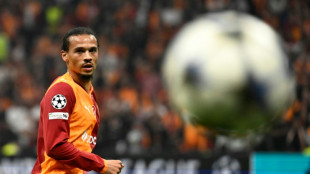
-
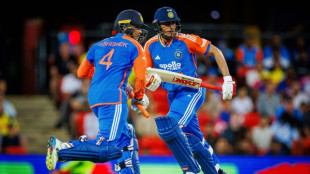 India thump Australia to take 2-1 lead in T20 series
India thump Australia to take 2-1 lead in T20 series
-
Cameroon's Biya, world's oldest president, sworn in for 8th term
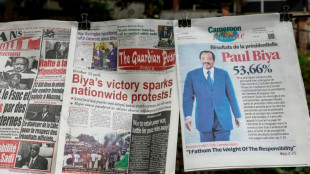
-
 Flick holding firm on Barca high line despite defensive woes
Flick holding firm on Barca high line despite defensive woes
-
Battered US businesses eye improved China trade at Shanghai expo

-
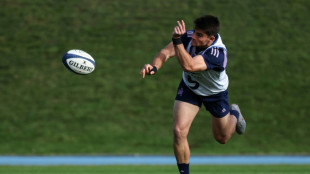 France opt for Le Garrec as Dupont replacement for 'best team ever' South Africa
France opt for Le Garrec as Dupont replacement for 'best team ever' South Africa
-
Drugmaker AstraZeneca profit jumps as US business grows

-
 'Vibe coding' named word of the year by Collins dictionary
'Vibe coding' named word of the year by Collins dictionary
-
Vietnam evacuates thousands from coast ahead of Typhoon Kalmaegi
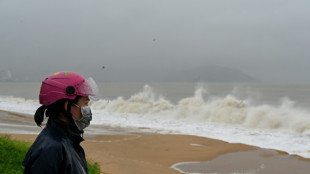

Israel strikes Hezbollah targets in Lebanon
Israel struck Hezbollah targets in southern Lebanon on Thursday as the group rejected the prospect of direct political talks between the countries and vowed to defend itself.
The Israeli military confirmed a new series of strikes had begun after warning civilians to evacuate certain buildings in three Lebanese villages: Taybeh, Tayr Debba and Aita al-Jabal.
An Israeli strike had already killed one person, according to the Lebanese health ministry. The Israeli military said it had targeted a Hezbollah construction team.
Israel and Lebanon agreed to a ceasefire in November last year, under a deal backed by the United States, France and international mediators, but Israeli strikes on Hezbollah have continued as it accuses the group of trying to rebuild its forces.
"We will not allow Hezbollah to rearm themselves, to recover, build back up its strength, to threaten the state of Israel," Israeli government spokeswoman Shosh Bedrosian told reporters, accusing the group of "continuous terrorist activities."
At the same time, Hezbollah lashed out at Lebanon's leadership, rejecting suggestions that it might be time to begin direct political talks with Israel.
A source close to Hezbollah's political leadership told AFP the declaration followed recent US and Egyptian pressure on Lebanon's leaders to open direct negotiations.
Lebanon and Israel are still technically in a state of war, but all the recent armed conflicts with Israel were fought by Hezbollah, not the Lebanese military.
The only diplomatic contact between Israel and Lebanon is through a ceasefire monitoring mechanism, which includes the United States, France and the United Nations.
This body meets regularly at the headquarters of the UN force in southern Lebanon but the Lebanese and Israeli parties do not directly communicate with each other.
- Disarmament drive -
Hezbollah was the only movement in Lebanon that refused to disarm after the 1975-1990 civil war, first claiming it had a duty to liberate territory occupied by Israel, and then to continue defending the country.
In an open letter to the Lebanese people and their leaders, Hezbollah said it rejected "any political negotiations" between Lebanon and Israel and that such talks would "not serve the national interest".
Hezbollah is backed by Iran, which also fought its own war against Israel earlier this year.
"We reaffirm our legitimate right... to defend ourselves against an enemy that imposes war on our country and does not cease its attacks," Hezbollah added.
The group nevertheless said it remained committed to a ceasefire reached with Israel last year, after months of hostilities that escalated into an all-out war.
Israel warned last week it could intensify operations in Lebanon against Hezbollah and Prime Minister Benjamin Netanyahu has accused the group of trying to rearm, after it suffered staggering losses in the last war.
Last week, US envoy Tom Barrack said that dialogue with Israel could be the key to easing tensions.
The Lebanese government is due to meet later Thursday to examine the progress of its efforts to disarm the militant group.
Despite the November 2024 ceasefire agreement, Israel maintains troops in five areas in southern Lebanon and has kept up strikes.
Since the ceasefire, the United States has increased pressure on Lebanese authorities to disarm the group, a move opposed by Hezbollah and its allies.
- 'Hasty decision' -
Israel has stepped up its strikes on Lebanon in recent weeks despite President Joseph Aoun saying he was open to negotiating. A Lebanese official told AFP on Thursday that Israel has not responded "positively nor negatively" to the offer.
The Lebanese government has ordered the army to devise a plan to disarm Hezbollah, but last week Israel's Defence Minister Israel Katz accused Aoun of "dragging his feet" after it suffered staggering losses in its last war with Israel.
In September 2024, Israel killed the group's longtime chief, Hassan Nasrallah and over the course of the war took out many other senior leaders.
Under the terms of the ceasefire, the army is tasked with ensuring Hezbollah is disarmed in the south near the Israeli border by the end of the year.
Hezbollah has criticised the government's "hasty decision" to disarm it, claiming that Israel has taken advantage of the push.
D.AbuRida--SF-PST
